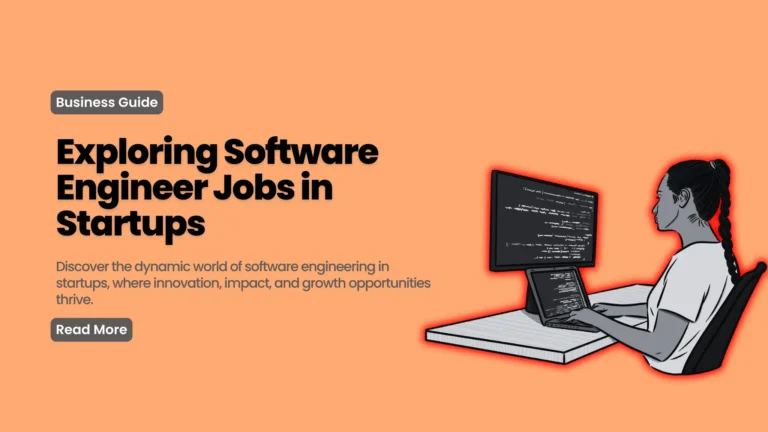13 Best Startups in San Francisco 2025: Key Innovators to Know
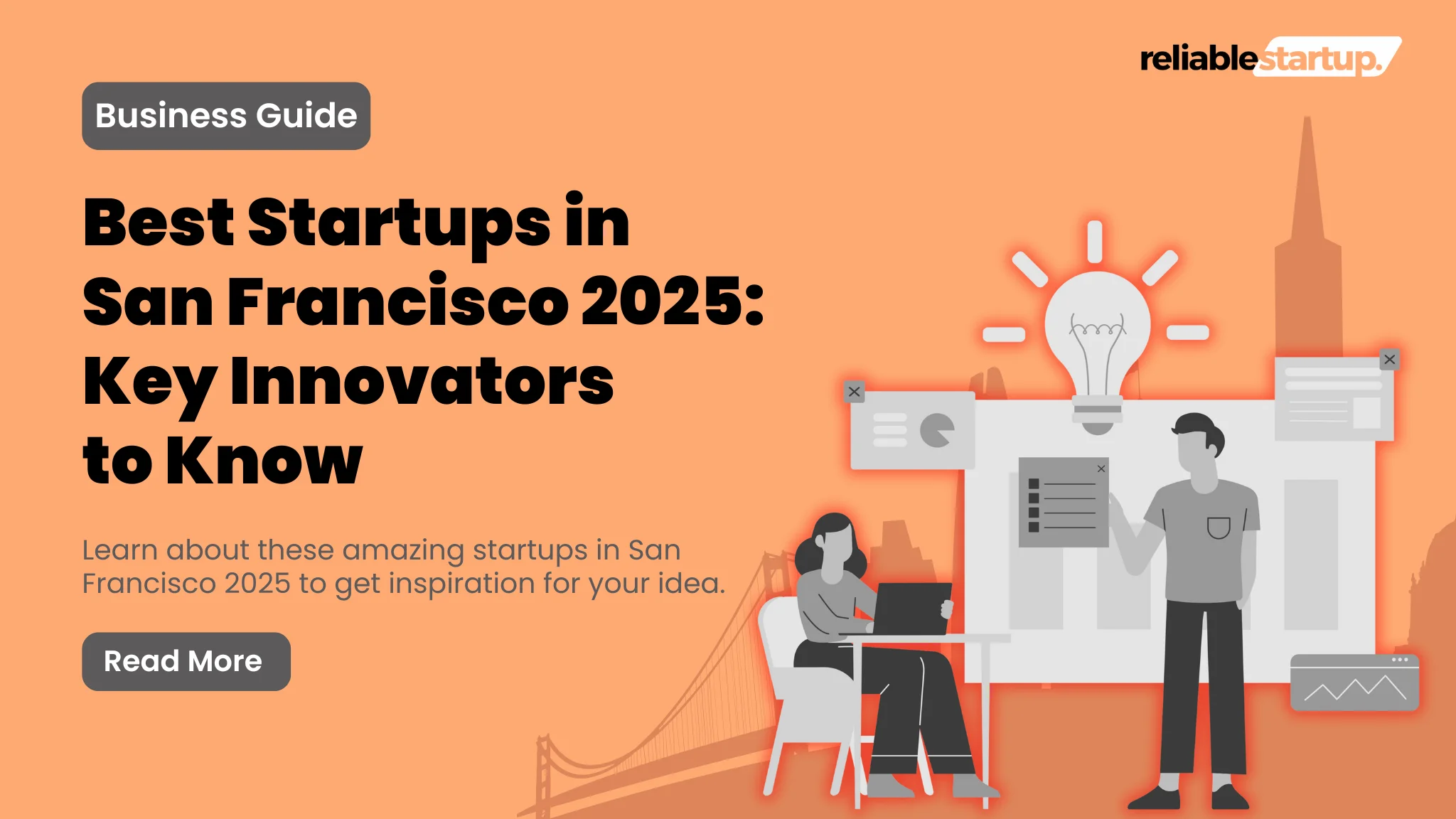
Starting a business isn’t easy; if you’re a founder or entrepreneur, you already know that.
Although exciting, it is exhausting, and sometimes it feels like there’s no clear roadmap to follow rightly.
But you don’t have to figure it all out alone.
San Francisco is home to some of the most innovative startups tackling problems just like yours.
These companies aren’t just dreaming big, they developed real solutions to shape up the industries. They’re making the way easier to understand to grow your business, reach your audience, and overcome the challenges of being a founder.
In this blog, we’re highlighting the best startups in San Francisco 2025. These companies are solving real problems in a more innovative, faster, and more creative way.
If you’re looking for inspiration, practical ideas, or even a glimpse of what’s possible, this list is for you.
Get ready to explore the companies leading the way in San Francisco!
13 Best Startups in San Francisco 2025
1. Anthropic
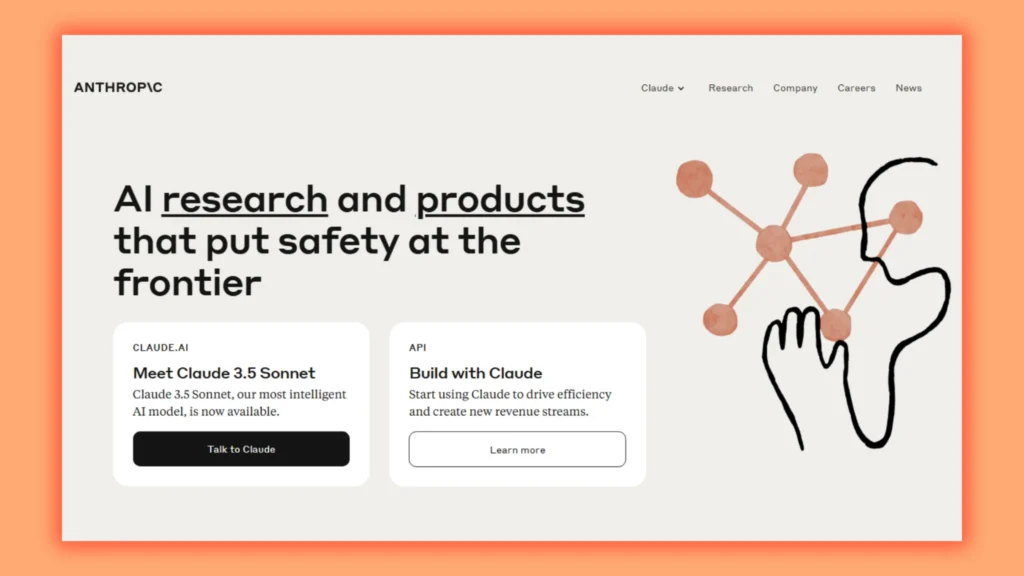
Industry: Artificial Intelligence (AI)
Funding: $4.51B
Employees: 573
Growth Rate: 324%
Latest Revenue: $721.9M
Key Leader: Jack Clark (Co-Founder)
Overview:
Anthropic is building safe and reliable AI systems for business and research organizations. Ethical AI commitment separates them from a rapidly growing industry with technologies emphasizing safety, fairness, and interpretability.
How They’re Solving Problems:
- Ethical AI: Their focus on controllable and interpretable AI prevents misuse or unpredictable behaviors.
- Business Integration: Offering scalable AI tools that can be customized for industries like healthcare, finance, and customer service.
What makes them standout:
- Transparency: Anthropic emphasizes open research, allowing businesses to understand how AI decisions are made.
- Partnerships with Regulators: They work directly with policymakers to create AI safety standards, gaining trust from enterprise clients.
Extra Insight: Their latest product, “Claude,” offers GPT-level language processing but includes user-adjustable safety levels, which is rare in the market.
2. Writer
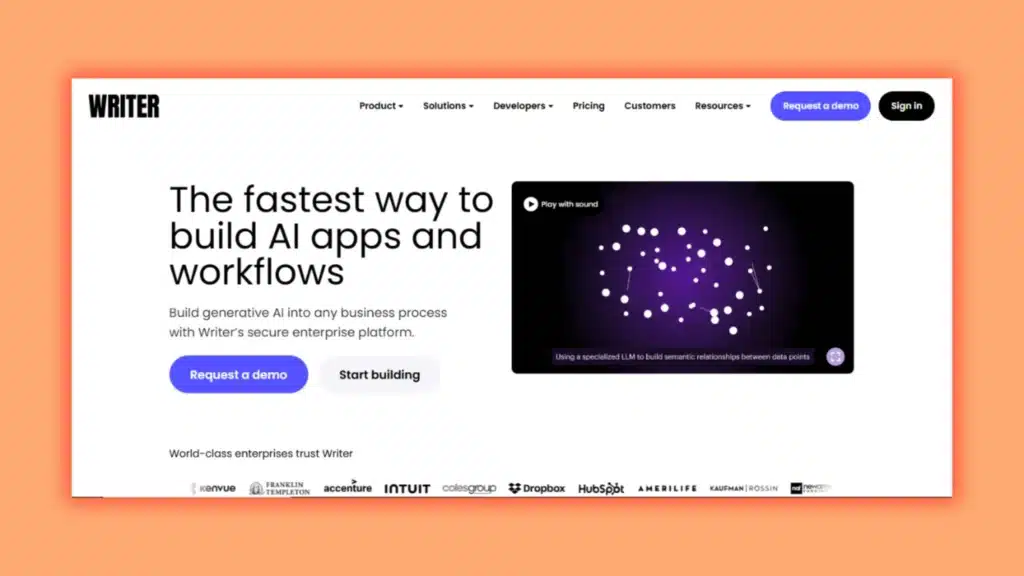
Industry: AI-Powered Content Creation
Funding: $144M
Employees: 1,226
Growth Rate: 281%
Latest Revenue: $245.2M
Key Leader: Waseem Alshikh (Co-Founder)
Overview:
Writer is a leading AI content generation tool that allows companies to scale marketing efforts without compromising brand voice. Advanced AI makes it consistent and creative compared to large-scale content-generating tools.
How They’re Solving Problems:
- Brand Consistency: Templates can be customized to ensure that all of the company’s content is the same: the tone and the style.
- Speed: It automates time-consuming tasks such as blog drafting, press release drafting, and social media posts.
What makes them standout:
- Specialized AI Models: The writer offers industry-specific models like healthcare, fintech, and e-commerce.
- Collaboration Tools: Collaboration tools are a favorite among marketing teams because they have real-time team editing features.
Extra Insight: The writer has recently been introduced to multi-lingual support, taking content from a single language to the global markets by tailoring localized content.
3. Typeface
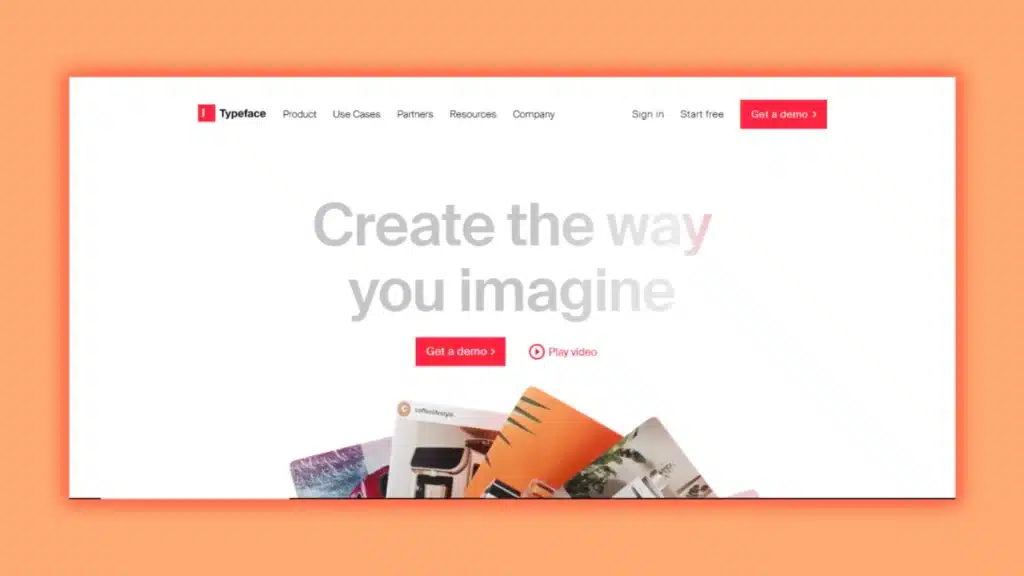
Industry: AI Content Creation
Funding: $206M
Employees: 111
Growth Rate: 200%
Latest Revenue: $15.5M
Key Leader: Nipun Dave (VP of Engineering)
Overview:
Generative AI paired with deep branding intelligence, Typeface offers AI-powered branding solutions. Their content creation platform enables teams to create content easily while maintaining brand integrity.
How They’re Solving Problems:
- Unified Brand Toolkit overlays text, imagery, and video editing in a single platform.
- Data-Driven Insights: The brand ensures that future campaigns are optimized based on analysis by AI algorithms.
What makes them standout:
- Integration-Friendly: Works with Adobe Creative Suite and Canva as well.
- Personalized Branding: It puts unique assets in place for sub-brands or products instead of redundancy.
Extra Insight: Typeface launched an AI-driven A/B testing module to enable brands to refine their campaigns more efficiently than with traditional methods.
4. Replit
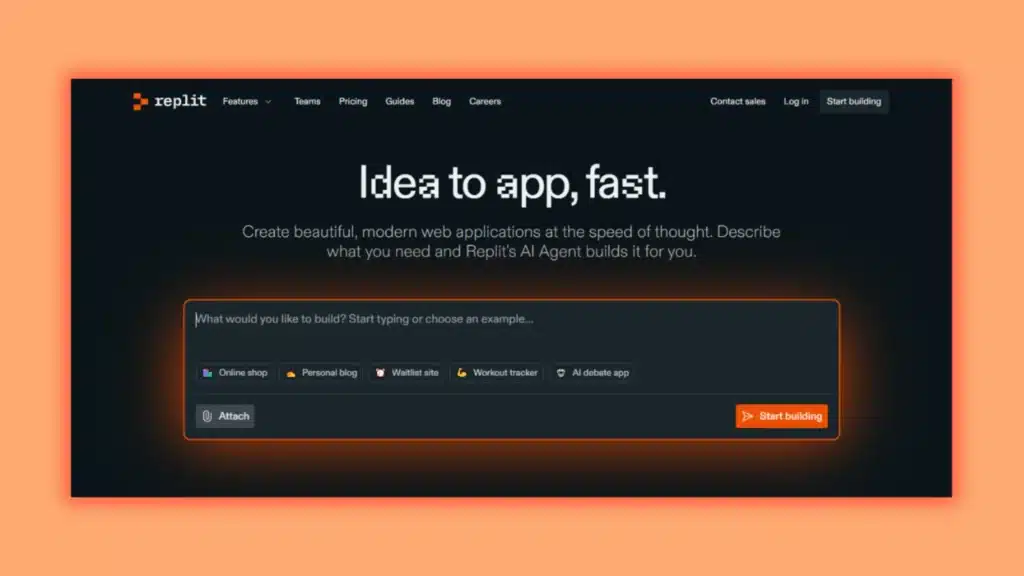
Industry: DevOps
Funding: $272M
Employees: 186
Growth Rate: 41%
Latest Revenue: $28M
Key Leader: Haya Odeh (Co-Founder)
Overview:
Released in 2017, Replit is a collaborative coding platform built for developers to write, test, and deploy software projects from within a browser because its real-time collaboration tools make it perfect for remote teams and education.
How They’re Solving Problems:
- Easy Accessibility: Browser-based IDE makes use of software installation.
- Collaboration Tools: The real-time code and version control make working with others easier.
What makes them standout:
- Education Integration: Coding boot camps and educational institutions rely heavily on Replit.
- Multi-Language Support: It supports more than 50 programming languages.
Extra Insight: “It’s called Ghostwriter, Replit’s AI assistant, which offers live debugging and coding suggestions, shortening the development lifecycle,” said Caleb Mitchell, CEO of Replit, in an email interview.
5. Together AI
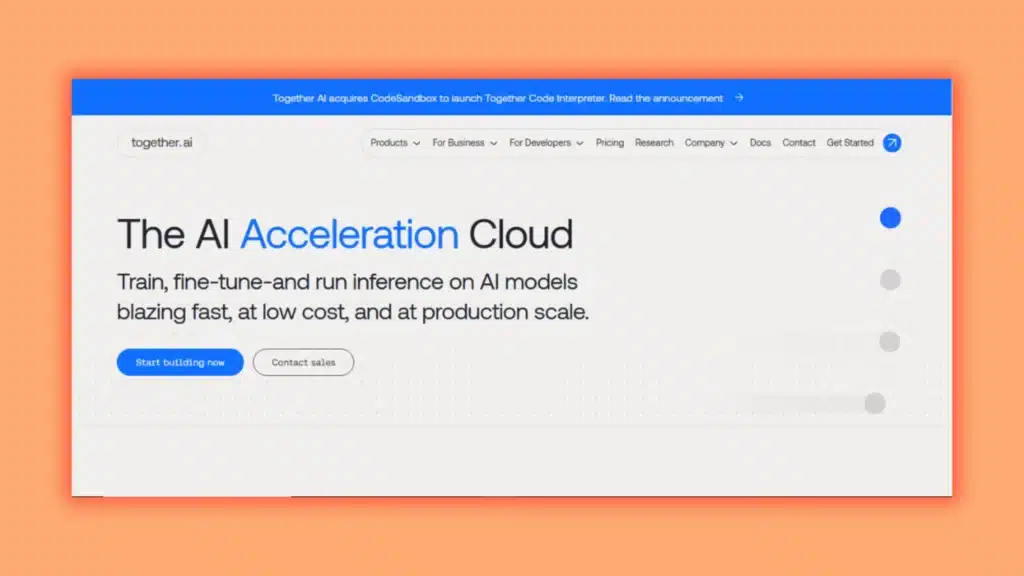
Industry: Artificial Intelligence (AI)
Funding: $228M
Employees: 71
Growth Rate: 223%
Latest Revenue: $8.6M
Key Leader: Chris Ré (Founder)
Overview:
Together, AI builds collaborative tools for machine learning researchers and data scientists. The open-source platform offers startups and enterprises alike access to the best of AI technology.
How They’re Solving Problems:
- Scalable Models: Making big language models into business.
- Open-Source Approach: Their tech is accessible to all, so they encourage innovation.
What makes them standout:
- Community Support: Continuous improvements are coming from a vibrant developer community.
- Efficient Deployment: Procedures for realizing AI in current software stacks.
Extra Insight: Its modular architecture means AI systems can be customized for a specific use case, and it’s a go-to for research teams.
6. Adept

Industry: Artificial Intelligence (AI)
Funding: $415M
Employees: 79
Growth Rate: 88%
Latest Revenue: $11.1M
Key Leader: Fred Bertsch (Co-Founder)
Overview:
Adept is changing how businesses interact with AI by developing intelligent systems that automate complex tasks on software applications. With their technology, non-technical users can leverage AI to get the best out of their operations.
How They’re Solving Problems:
- Cross-Application Functionality: Users can now use Adept to train AI models that can perform across numerous software platforms like Salesforce, Google Workspace and Trello.
- Task-Specific Automation: It automates repetitive tasks (data entry, report generation, scheduling), saving you work hours.
What makes them standout:
- User-Friendly Interface: Adept aims to get you hooked and create necessary tools, not code.
- Scalability: As teams grow, so do their solutions; they evolve to help work through new workflows and the latest tools.
Extra Insight: The newest feature, ‘TaskBot’ from Adep,t takes on voice commands and lets busy professionals delegate tasks to AI with a few spoken instructions.
7. MaintainX
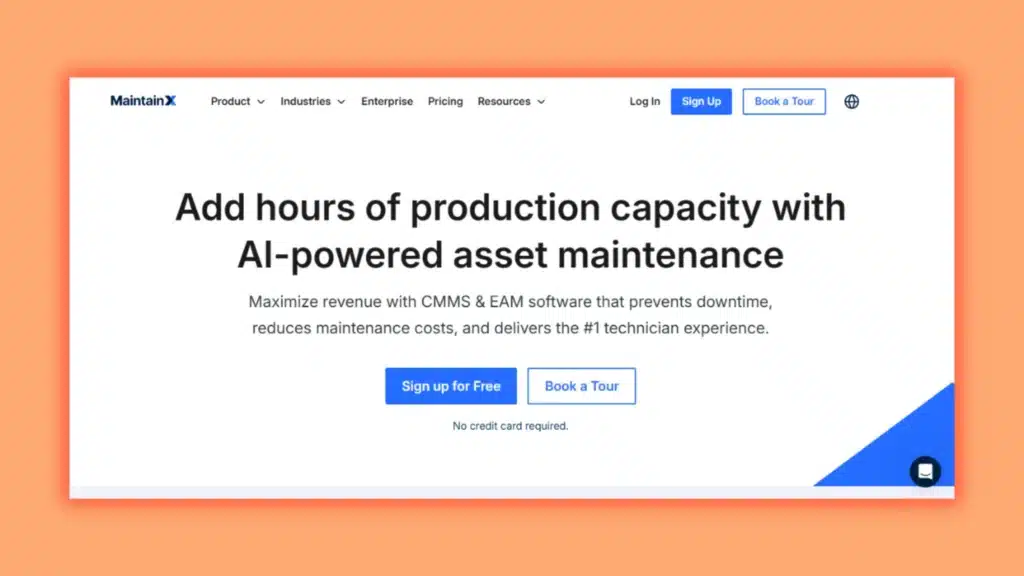
Industry: Tech Services
Funding: $104M
Employees: 390
Growth Rate: 117%
Latest Revenue: $71.8M
Key Leader: Nick Haase (Co-Founder)
Overview:
It is a mobile-first operations management platform for manufacturing, facilities, and maintenance teams. It can track work orders and operational and equipment inspections as an all-in-one solution.
How They’re Solving Problems:
- Digital Workflow Management: It makes manual tasks easy to track and converts them into digital processes.
- Real-Time Reporting: Team productivity can be monitored instantly, and bottlenecks can be identified.
What makes them standout:
- Offline Mode: Tasks can still be accessed and updated offline by teams that work in remote or low-connectivity areas.
- Customizable Dashboards: It allow companies to tailor the platform to meet industry-specific needs from factories to retail outlets.
Extra Insight: Recently, MaintainX added IoT, which allows equipment to send out real-time alerts of when maintenance is needed, reducing downtime and repair costs.
8. Zip
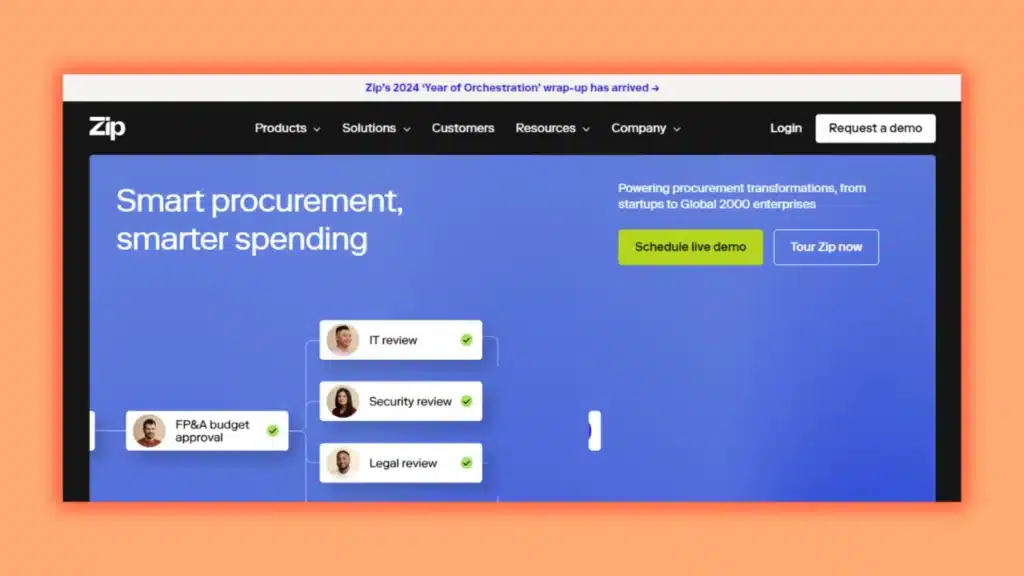
Industry: Fintech
Funding: $181M
Employees: 3,780
Growth Rate: 26%
Latest Revenue: $1.7B
Key Leader: Rujul Zaparde (Co-Founder)
Overview:
Zip is building an end-to-end, all-in-one platform to streamline the procurement processes of businesses by making it easy to purchase and manage vendors and approvals.
How They’re Solving Problems:
- Streamlined Approvals: It saves teams’ time by automating multi-level approvals for purchasing requests.
- Vendor Management: Provides an easy way to onboard and invoice vendors.
What makes them standout:
- AI-Powered Insights: Analytics on spending patterns to help companies cut costs and manage budgets better.
- Cross-Platform Integration: It works flawlessly with books and accounting systems like SAP and QuickBooks.
Extra Insight: Enterprise prefers Zip because it does compliance checks in buying workflows to see how the organizations are aligned with their policies.
9. Unlearn.AI

Industry: Artificial Intelligence (AI)
Funding: $135M
Employees: 92
Growth Rate: 23%
Latest Revenue: $12.9M
Key Leader: Aaron Smith (Founder)
Overview:
Unlearn.AI uses AI to speed up clinical trials and make drug development quicker and more efficient. Instead, their technology builds ‘digital twins’, or virtual models of trial participants, to simulate outcomes and to eliminate the need for lots of sample size.
How They’re Solving Problems:
- Digital Twins: It helps bring down clinical trial timelines through simulation of patient response virtually.
- Cost Reduction: It takes the financial barriers out of running extensive trials making life easier for smaller biotech firms.
What makes them standout:
- Regulatory Compliance: Closely works with regulatory agencies to ensure you comply with the digital twin’s FDA standards.
- Integration with Pharma: Works with pharmaceutical companies to optimally design drug approval processes.
Extra Insight: Recently, Unlearn.AI made a partnership with leading CROs (Contract Research Organizations) to scale their technology to benefit a range of diverse patient populations globally.
10. Lambda
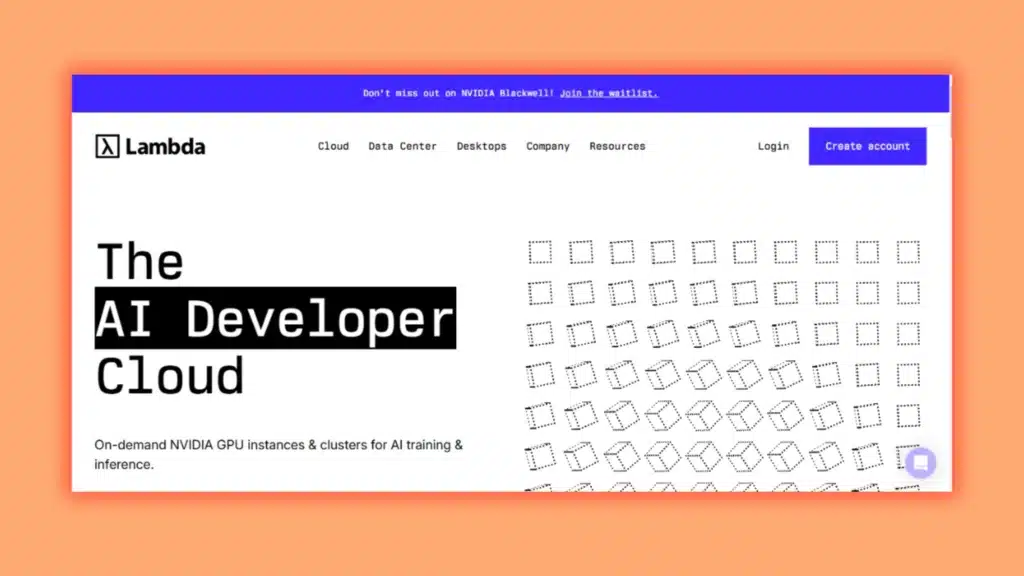
Industry: Hardware
Funding: $383M
Employees: 332
Growth Rate: 52%
Latest Revenue: $168.7M
Key Leader: Stephen Balaban (Co-Founder)
Overview:
Lambda is transforming machine learning hardware by offering high-performance, affordable options for developers that use machine learning. Research labs, startups, and tech giants use their GPUs and deep learning workstations.
How They’re Solving Problems:
- Affordable AI Hardware: Offer an alternative to pricey cloud-based GPU instances.
- Plug-and-Play Systems: Eliminates the complexities of setup for developers with ready-to-use hardware.
What makes them standout:
- Developer Support: Lambda provides tutorials, pre-installed libraries, and troubleshooting for hassle-free integration.
- Scalability: They serve startups to large enterprise-scale research labs and grow with your AI team.
Extra Insight: Recently, Lambda has added AI optimization tools to provide quicker training times for large machine-learning models.
11. EvenUp
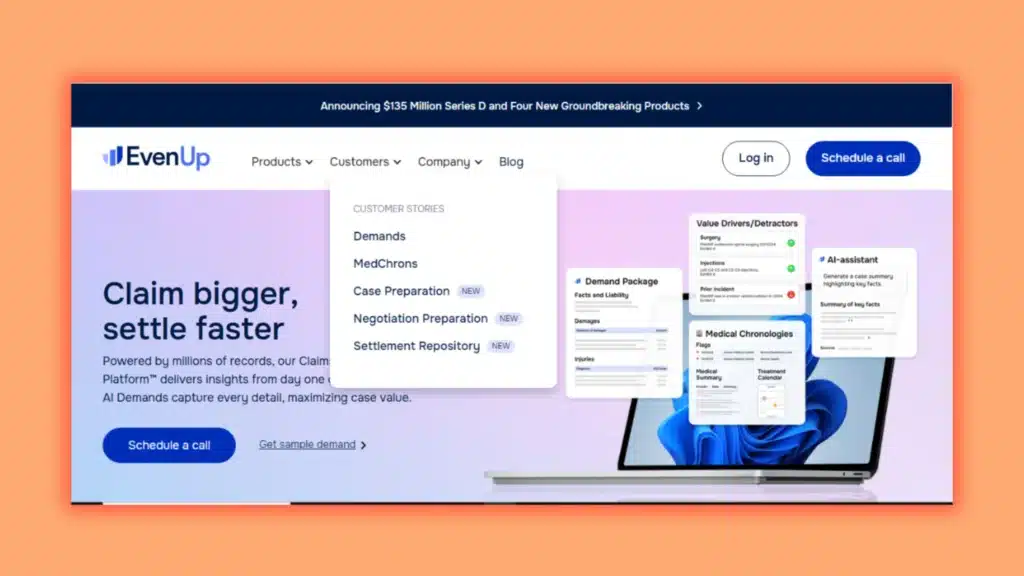
Industry: LegalTech
Funding: $65M
Employees: 385
Growth Rate: 64%
Latest Revenue: $68.5M
Key Leader: Rami Karabibar (CEO & Co-Founder)
Overview:
AI enables evenUp to help personal injury lawyers determine accurate and efficient case values. Their platform ensures fair settlement, providing data-driven insights into case evaluations.
How They’re Solving Problems:
- Case Valuation Tools: Predicts settlement values using case history and regional data using AI.
- Efficiency: It reduces the time lawyers spend performing manual calculations to obtain a solution faster.
What makes them standout:
- Transparency: Detailed reports explain AI predictions to ingratiate legal professionals.
- Customizable Algorithms: It helps lawyers change AI parameters to match a firm’s strategies.
Extra Insight: Now EvenUp is aiming to touch other areas of law as well.
12. Linear App

Industry: DevOps
Funding: $52.2M
Employees: 82
Growth Rate: 78%
Latest Revenue: $11.5M
Key Leader: Jori Lallo (Co-Founder)
Overview:
The project management tool Linear App is aimed at developers and is designed to be very streamlined. It’s a minimalist, high-performance interface that simplifies issue tracking, sprint planning, and team collaboration.
How They’re Solving Problems:
- Developer-Centric Design: It aims for speed and simplicity with simple features.
- Real-Time Updates: Gives instant feedback on project changes to keep the team in alignment.
What makes them standout:
- Performance: Linear is built to be fast for fast-moving teams, way quicker than anything like Jira.
- User Experience: Clean and straightforward UI accelerates new user onboarding time.
Extra Insight: More integrations with GitHub and Slack have been recently added to the Linear tool, adding more to the arsenal of the software teams.
13. GrubMarket
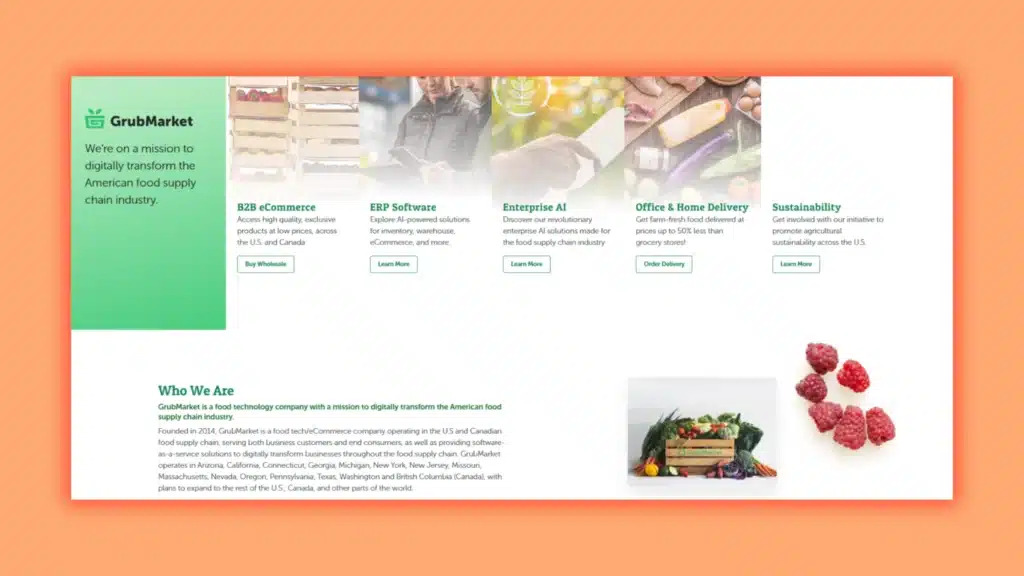
Industry: FoodTech
Funding: $500M+ (estimated)
Employees: ~2,000
Growth Rate: Steady
Key Leader: Mike Xu (Founder & CEO)
Overview:
GrubMarket brings farmers and food suppliers closer to the consumer or the business by removing the middleman. They are becoming a big player in the food distribution space and standing out from the crowd due to their attention to sustainability and transparency.
How They’re Solving Problems:
- Direct Sourcing: Byways around traditional supply chains, it ensures fresher produce at lower prices.
- Tech-Enabled Efficiency: It uses AI to forecast demand and reduce food waste.
What makes them standout:
- Diverse Clientele: Enterprise clients (restaurants, local grocery chains, etc.) and individual consumers are served.
- Sustainability Focus: Works as partners with local farmers to minimize transportation emissions.
Extra Insight: Large-scale buyers use GrubMarket’s e-commerce platform, seamlessly integrating with inventory systems.
Conclusion
From AI and fintech to food tech and legal services, these 13 startups show innovation far and wide. And they’re not just disrupting markets—they’re solving critical problems, making advanced technologies more accessible to businesses of all sizes, and making markets more efficient. Now, if you still have anything to discuss related to the whole startup idea, Reliable Startup is here to listen to you.
Contact us to get the best business advice today!
FAQs
1. What industries are the top San Francisco startups in 2025 focusing on?
The best startups in San Francisco are excelling in diverse industries, including artificial intelligence (AI), fintech, healthtech, clean energy, and Web3 technologies.
2. What makes San Francisco a hub for innovative startups?
San Francisco offers a unique ecosystem with access to top talent, venture capital, established tech networks, and a culture of innovation, making it a hotspot for cutting-edge startups.
3. How are the best startups in San Francisco addressing global challenges?
The use of advanced technologies and supporting sustainable business practices allow many startups to solve critical issues like climate change, health access, financial inclusion, data privacy, among others.
4. Which San Francisco startup sectors are expected to grow most in 2025?
Predicted to grow are sectors including AI-driven solutions, biotech, renewable energy, and the metaverse, spurred by increasing consumer demands and technological luminaries.
5. How can I get involved with or invest in the best startups in San Francisco?
Start-up networking events, getting in touch through AngelList, LinkedIn, or other platforms, and investing in venture capital funds, crowdfunding platforms,s or direct equity stakes are ways to get involved.






